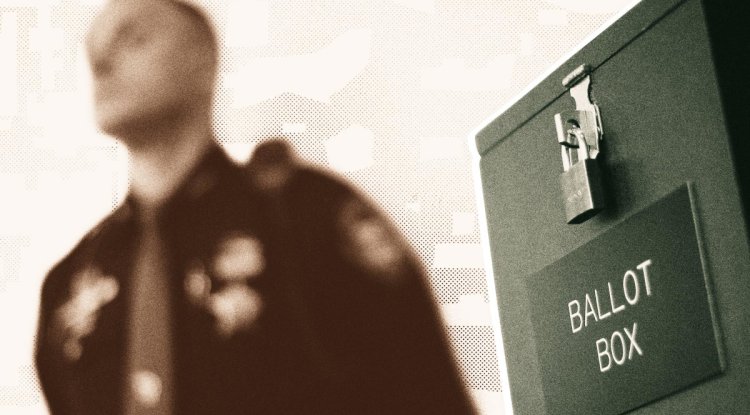The Long-Term Effects of Verbal and Psychological Abuse
Too many people have become offended when someone offers them advice of how to treat their children. The trending phrase is “Do not tell me how to raise my child.” But some parents need serious advice because too many kids are simply too out of control.

Too many people have become offended when someone offers them advice of how to treat their children. The trending phrase is “Do not tell me how to raise my child.” But some parents need serious advice because too many kids are simply too out of control.
The fastest way to destroy the self-esteem and character of a child and set that child on the path of belligerence, is to direct malicious verbal words at the child’s abilities and accomplishments. When it comes from a peer or anyone else outside the home it can be tolerated more because there is no permanent bond to the attacker. But when verbal abuse comes from a loved one such as a parent or other sibling on a daily basis, it hurts and destroys a deeper part of the child’s character.
When your son or daughter does not make the bed correctly or fast enough, or when they fail to clean the dishes as they wash them, or bring home grades to your satisfaction, calling that child stupid, lazy, dumb, or incompetent will never get positive results from that child. If the child fails at either, it is probably because the parent did not take the time to actually teach them how.
The mistake many parents make is they fail to go over the steps – with patience - before telling the child what to do. You cannot always expect a child to learn by watching and to do it to your own satisfaction. Some children need and want to be taught things step by step and to do it themselves. Some learn by watching but others need extra help.
What is worst is cursing at children when they fail. Cursing at them will surely produce a cursing child, and when the teacher calls your job complaining that Jimmy has cursed her and his classmates out, and the police are there, there is no need to punish the child; punish yourself. Or when they start cursing at you, ask yourself where it came from.
Children are learning prototypes. They have to be guided and instructed on how to do things, how to say things, and how to act toward other people, in public, and taught to occupy their time in between activities. They cannot be expected to know these things without guidance. A child grows in a positive direction only if the parent is growing the same way.
Children also hear the words of their parents in their heads as a conscious guide so if the parent is constantly cursing at them or even if they are praising them, this is what they hear when they are trying to do something for themselves.
The authority of a parent is a valuable one that must be used for positive development and not to create a replica of the streets. A parent must be patient and understand that the child can only learn through what you teach them and how you treat others and behave in public. If you find yourself calling your child names or cursing at them through your own frustration, there is most certainly something in your life that is an issue or was never resolved.
Psychological abuse is when a parent subtly breaks the confidence and will of their child so they can manipulate them in the future. An example is comparing the child to others or themselves, or constantly undermining their achievements, ideas, and feelings. This causes children to bottle up anger inside because they feel they cannot meet the expectations of the parent or anyone else for that matter.
Past experiences not confronted from your life could surface at a time during child rearing because the parent’s own childhood memories surface, which could sometimes bring pinned up feelings of anger or depression. This, in turn, results in the verbal, psychological, and sometimes physical abuse of a child.
Many people can confess that they were never physically abused as a child but many cannot say they were not verbally or psychologically abused. Some do not even realize they were abused in that manner during their childhood. People with bad attitudes, emotional swings, and negative views toward life in general would signal the act of past verbal and psychological abuse.
Some people falsely believe they were mistreated as a child because of misunderstandings and a lack of communication between them and their parents when growing up. They never take the time to talk with their parents or understand who their parents really are as a person. They know them as parents, but do not know them as people.
It is good practice to sit down with a parent, once a person is matured enough to, and talk with them and ask them about their upbringing, their ethics and moral beliefs. Getting to know a parent as a person can help people understand who they really are themselves.
Counseling is not necessarily an antidote to healing the abused mind. A positive relationship could counter this type emotional disturbance in a person’s life better than an informal relationship with a total stranger. A good marriage or friendship would also help a person to learn to trust, feel good about themselves, and to pass that support down to their children.
Many times, a parent will experience the consequences of how they raised their children once the child gets older and on its own. If the child has separated themselves from the parent, the parent hurt them somewhere down the line. If the child clings to the parent in dependency, the parent did not instill confidence in the child to do for themselves.
If the child is treating the parent badly, it is because they felt mistreated as a child. And if the child has a lifestyle unbecoming to the parent, it is a reflection of the level of discipline the parent gave or the lifestyle of the parent themselves.
People grow up in different environments and around different people who have influences on them, but if the child is raised in a drama free environment, they will turn away from drama in their lives. However, if people are raised in abusive environments, they will draw abusive people into their lives.
No ones know how a child will turn out in life, but one thing is for sure; if the child has a high confidence level about themselves, they are more able to adapt to the world. If the child finds themselves in constant conflict with life, it is because they are emotionally unstable and need reassurance.

















